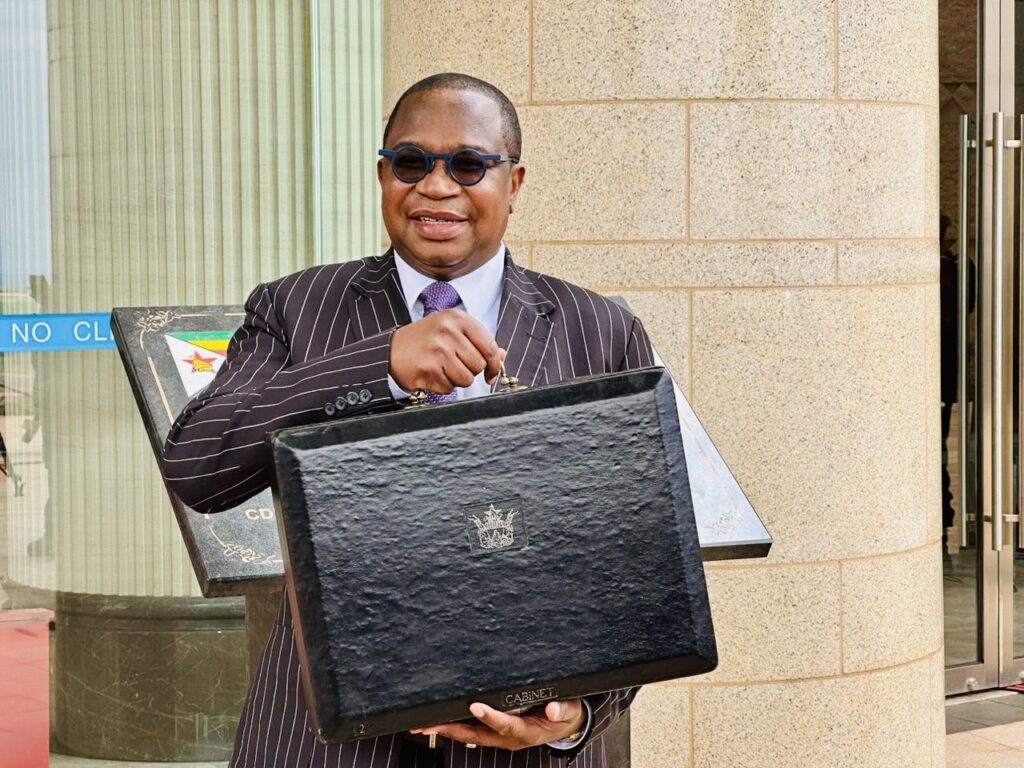- Africa’s new dawn: the rising role of digital and AI in agriculture
- Can Dangote Refinery Transform Africa Energy Ambition
- Gallup Survey: 80 per cent of Kenyan Workers Are Disengaged and Seek New Opportunities
- Madagascar Man Freed from 5KG Tumor After 15-Year Struggle
- How women in Africa are perceived and treated
- Sugar consumption in Kenya to Increase to 1.23 Million Tonnes
- Can Somalia and Turkey Oil deal Bring Change in Somaliland
- Remittances to Kenya dropped to $371.6 million in June, marking a six month low
Author: Albert Nangara
Albert is an experienced business writer specializing in stock exchanges, financial markets and technology. He has a deep understanding of the dynamics of the global economy and a keen interest in analyzing investment trends, market trends, and the impact of investments on stock prices especially in the Southern African region.
- USSD is used extensively across Africa to enable mobile banking and mobile payments
- Despite its widespread use, USSD has significant limitations. The menus can be cumbersome and difficult to navigate, transactions are susceptible to interception and lack robust encryption.
- WhatsApp chatbots represent a promising alternative to USSD in Africa’s digital financial services sector by offering a more user-friendly, secure, and cost-effective solution.
Unstructured Supplementary Service Data (USSD) have been quoted as a catalyst for financial inclusion in Africa for over a decade now. However, with the advent of new technologies and platforms, the use of USSD has been largely overshadowed by more advanced forms of mobile banking. The integration of banking services through WhatsApp has the potential to revolutionize the way we manage our finances. With its wide reach and user-friendly interface, WhatsApp can quickly become the go-to channel for customers to access their banking services.
USSD was introduced in …
- Zimbabwe earned US$209 million from lithium exports in the first nine months of 2023.
- The country’s lithium potential has captured significant attention, particularly from Chinese investors who have injected over US$1 billion in the mineral’s value chain.
- Lithium is a critical component in the production of electric vehicle (EV) batteries. Global electric vehicle (EV) car sales increased by 60 per cent in 2022, reports the International Energy Agency.
Zimbabwe is emerging as a pivotal player in satisfying the surging demand for lithium, a vital element used in the production of electric vehicle (EV) batteries. Zimbabwe has the largest lithium reserves and mines in Africa, while globally the country ranks high amongst the leading lithium producing and supply countries after Chile, Australia, China, Argentina and Brazil.
According to an article by Reuters published on November 1, 2023, Lithium is set to become Zimbabwe’s third biggest mineral export after gold and …
- With untapped potential in private healthcare, skilled doctors, and a growing interest in medical care, South Africa is making its mark in providing top-notch healthcare services.
- Only 297 people came to South Africa for medical reasons in October 2023, less than 0.1 per cent of all visitors. Even though it seems small, it’s a sign that more people are choosing South Africa for specialized medical care.
- Medical tourism refers to travelling abroad for medical care or treatments not available at home or which are more expensive there than elsewhere.
South Africa is becoming a popular choice for people seeking medical treatment, not just for vacations. The South African medical industry has pioneered many ground-breaking surgeries and medical research, including the world’s first heart transplant and more recently, the world’s first middle-ear bone transplant using 3D printed components. The Southern African Development Community (SADC) recognizes the country for its excellent healthcare, …
- CBZ Holdings, FBC Holdings, and ZB Financial Holdings have all played a pivotal role in shaping Zimbabwe’s banking sector this year.
- One of the most notable transactions in 2023 involves CBZ’s acquisition of a 36.35 per cent stake in First Mutual Holdings Limited.
- 2023 saw FBC Holdings execute a strategic move by acquiring Standard Chartered Bank Zimbabwe Limited.
This year has proven to be a transformative period for Zimbabwe’s banking sector, witnessing significant acquisitions that have reshaped the landscape. In particular, three major players, CBZ Holdings Limited (CBZ), FBC Holdings Limited (FBC), and ZB Financial Holdings (ZB), have played a pivotal role in these developments.
These acquisitions signify a dynamic shift in Zimbabwe’s banking sector, with key players strategically positioning themselves for growth and market dominance.
Acquisitions shaping Zimbabwe’s banking sector
One of the most notable transactions in 2023 involves CBZ’s acquisition of a 36.35 per cent stake in First …
- Zimbabwe’s Minister of Finance, Economic Development, and Investment Promotion has unveiled a significant policy shift regarding the levy on sugar content in beverages.
- This measure is scheduled to take effect from January 1, 2024, to discourage the consumption of high-sugar beverages.
- While introducing the sugar content levy is presented as a measure to address health concerns, its impact on consumers, beverage industries, and the healthcare sector remains uncertain.
The 2024 National Budget Speech, presented to the Parliament of Zimbabwe by Prof. Mthuli Ncube, Zimbabwe’s Minister of Finance, Economic Development, and Investment Promotion, has unveiled a significant policy shift regarding the taxation of sugar content in beverages.
Citing global concerns about the health implications of high sugar consumption, especially in beverages, Minister Ncube acknowledged the worldwide trend of implementing sugar taxes, including in the Southern African Development Community (SADC) region. The proposed policy change is driven by the adverse health effects …
- Artificial Intelligence (AI) is emerging as a key player in transforming South Africa’s labour market and empowering its youth population.
- Initiatives focused on AI education and skill development can equip the youth with the competencies necessary for the evolving job market.
- This ensures that they are well-prepared for the increasing integration of AI technologies across various industries.
Africa is home to the world’s youngest population, but unfortunately, 60 per cent of the continent’s unemployed are youth, as highlighted by the United Nations. This trend is mirrored in South Africa, despite the government’s efforts, such as allocating R5.2 billion in tax relief in the 2022 National Budget to spur economic recovery and encourage youth employment.
The impact of the COVID-19 pandemic has been acutely felt in South Africa’s labour market. According to Labour market dynamics in South Africa 2022 report published by Statistics South Africa, stringent containment measures resulted in a …
- The government has announced a reduction in interest rates on student loans in Zambia from 15 per cent to 10 per cent, effective January 2024.
- The cost of pursuing higher education can be a significant financial burden for many students and their families.
- In Zambia, there are several options. Universities are offering student loans to fund education, and one of the most common methods is through student loans.
In a significant move aimed at easing the financial burden on students, the Zambian government has announced a reduction in interest rates on student loans from 15 per cent to 10 per cent, effective January 2024. The announcement was made by Douglas Syakalima, Zambia’s Minister of Education, during a media briefing held on Monday, November 27, 2023, at his office.
The decision to lower the interest rates comes after extensive consultations between the government, facilitated through the Higher Education Loans and Scholarship …
The latest data from the Zambia Statistics Agency (ZAMSTATS) has placed Switzerland as the dominant force in Zambia’s export market. Switzerland accounted for a staggering 45.9 per cent of Zambia’s export earnings for September 2023.
ZAMSTATS’ October monthly bulletin reveals Switzerland’s dominant position as Zambia’s primary export destination. This is primarily driven by the export of copper anodes for electrolytic refining. Copper exports constitute a significant 73.4 per cent of total export earnings.…
Africa is a continent of diverse religions, cultures, and intricate histories. Christianity is one of the major faiths that has shaped the lives and identities of millions of Africans. The continent has also evolved beyond its spiritual dimension to encompass a thriving business aspect.
Numerous churches and religious organizations have ventured into various economic activities, generating income and wielding significant influence. Consequently, some churches have become mega-churches with thousands of members and millions of dollars in revenue. They often own businesses such as schools, hospitals, media outlets, and real estate investments.…
- Econet Wireless Zimbabwe, a Telecommunications company founded by Strive Masiyiwa, has introduced the country’s first eSIM service.
- eSIM is a digital SIM card embedded in smartphones, eliminating the need for a physical SIM card and allowing users to have multiple phone numbers on one device.
- Econet’s adoption of eSIM technology aligns with global trends and promises to bring numerous benefits to both consumers and the company itself.
Econet Wireless Zimbabwe, one of the country’s leading telecommunications companies, has taken a bold step by introducing the country’s first eSIM service. This innovative technology, known as eSIM (Embedded Subscriber Identification Module), is a digital SIM card that is embedded in smartphones, eliminating the need for a physical SIM card.
Econet Wireless Zimbabwe’s introduction of eSIM technology is not merely a technological advancement but a strategic move to provide its customers with a better, more flexible, and sustainable communication experience.














